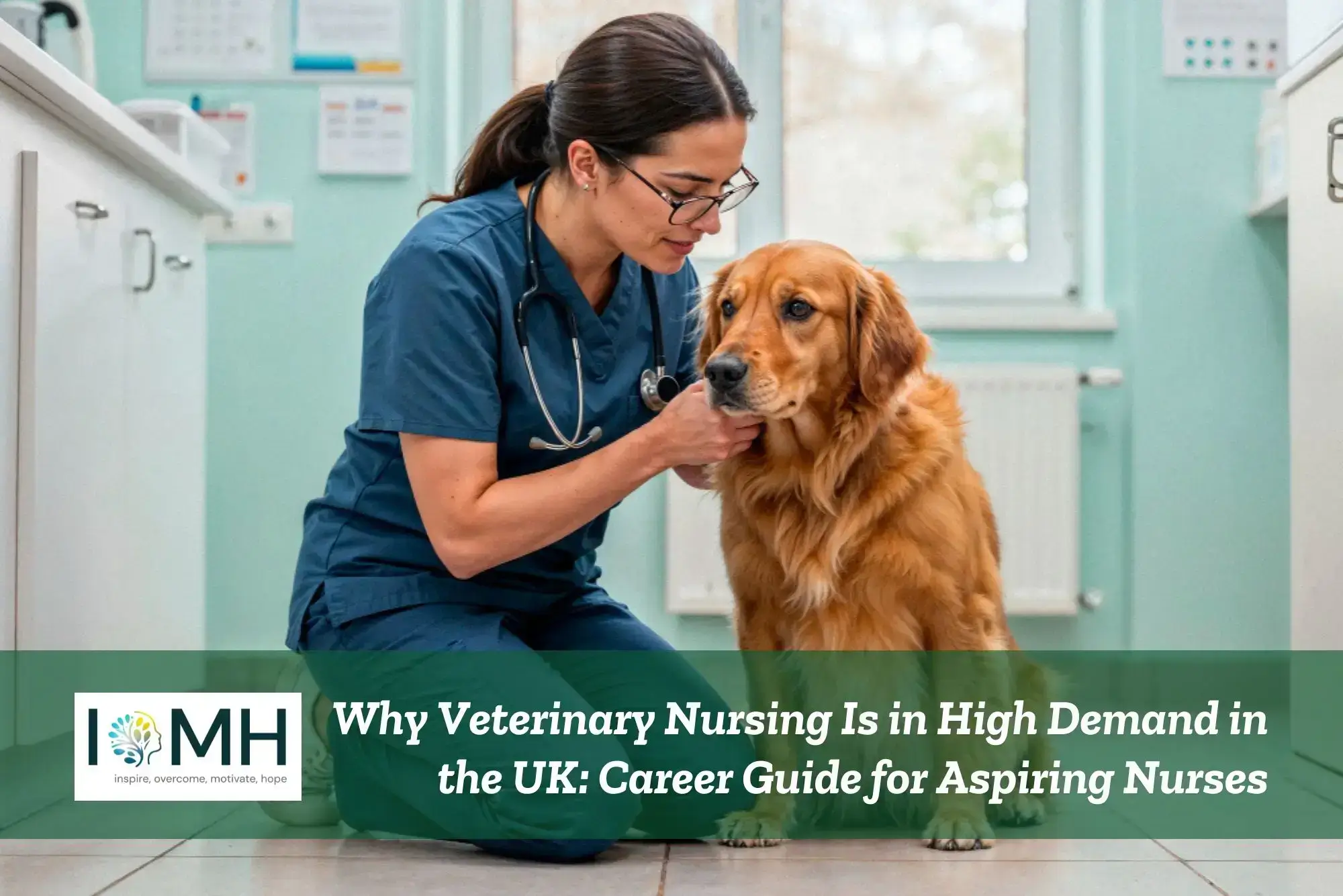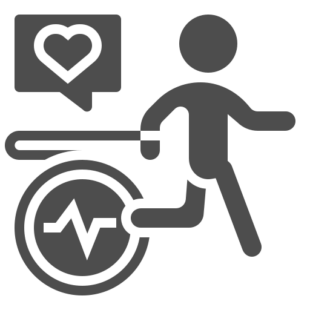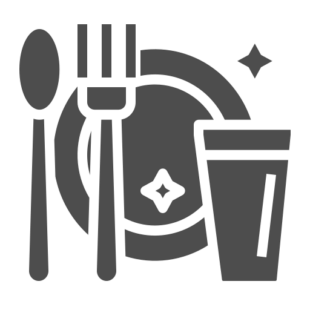
Why the Veterinary Nursing Becoming a Highly Demanded Job in the UK?
Now, in the UK, over 60% of households have their own pet, which thing driving the demand for veterinary services. Many veterinary nurses are actively hiring in animal hospitals, Charities (RSPCA, Blue Cross, PDSA), Zoos, wildlife centres, and research labs. The involvement of Veterinary Nurses, veterinary hospitals and animal care and research facilities to offer expanded services efficiently and effectively, and as a result, veterinary nurses are in high demand.
What is Veterinary Nursing?
Veterinary Nursing is a specialised profession focused on providing medical care to animals under the direction of a veterinary surgeon (vet). Veterinary nurses (VNs) play a crucial role in animal healthcare, similar to how human nurses assist doctors.
What do Veterinary Nurses do?
Veterinary nurses are essential members of the veterinary healthcare team, delivering hands-on care, clinical support, and emotional reassurance to both animals and their owners.
Veterinary Nurses have diverse medical responsibilities, including animal nursing care, surgical assistance, physical therapy, anaesthesia, dental prophylaxis, radiographic imaging (x-ray), nutritional management, laboratory specimen analysis, and client education. These varied duties afford the veterinary paraprofessional a profound impact on every aspect of animal care.

How to Become a Veterinary Nurse?
If you want to become a Veterinary Nurse, maybe you have many questions in your mind about that, like how to become a veterinary nurse, where I will do the veterinary nurse course, how I will register, what the salary will be, etc.
Meeting the Academic and Experience Requirements
Becoming a veterinary nurse in the UK is a structured process that requires specific qualifications and practical training. The first step is meeting the academic requirements, which typically include at least five GCSEs at grade 4/C or above, with English, Maths, and Science (particularly Biology) being essential. For those without traditional GCSEs, alternative qualifications such as Level 2 or 3 Diplomas in Animal Care may be accepted.
Choosing the Right Training Pathway
There are three main pathways to qualify as a Registered Veterinary Nurse (RVN) in the UK. The most common route is the Level 3 Diploma in Veterinary Nursing. Another option is a Bachelor’s degree (BSc) in Veterinary Nursing, typically lasting three to four years, which offers a more academic approach and can lead to advanced career opportunities.
01. Level 3 Diploma in Veterinary Nursing

02. Bachelor’s Degree (BSc) in Veterinary Nursing

03. Alternative Route via Portfolio Assessment

Once training is complete, aspiring veterinary nurses must register with the Royal College of Veterinary Surgeons (RCVS) to practice legally in the UK. Those who have completed a diploma or degree will need to pass the Objective Structured Clinical Examination (OSCE), a practical assessment of clinical skills.
Registration ensures that all RVNs meet the high standards required for animal care and professional practice. After registration, newly qualified RVNs can work in a variety of settings, including private veterinary practices, animal hospitals, and charities, with salaries typically starting between £22,000 and £26,000 per year.
Diploma in Veterinary Nursing
Veterinary Nurse Skills: What You Need to Succeed in UK Practice?
Clinical Skills Every Veterinary Nurse Must Know
Veterinary nurses play a vital role in animal care, assisting with diagnostics, surgery, and recovery. These clinical skills are the Fundamentals of Veterinary Nursing. Core clinical competencies include:
- Safe animal handling & restraint.
- Anaesthesia monitoring & recovery support.
- Veterinary Medicine administration (oral, injectable, topical).
- Wound care, dressing, and bandaging techniques.
- Radiography & diagnostic imaging.
- Sample collection for lab testing (blood, urine, faeces).
Legal, Administrative & Compliance Skills
Veterinary nurses must navigate complex legal frameworks while maintaining accurate records and client communication.
- Clinical record keeping & consent documentation.
- Stock control & inventory management.
- Client communication & aftercare guidance.
- Understanding the Veterinary Surgeons Act, GDPR, and RCVS Code of Conduct.
Emotional Intelligence & Soft Skills
Veterinary nursing demands empathy, resilience, and teamwork—especially in high-pressure situations.
- Empathy for owners and animals in distress.
- Resilience during emergencies and euthanasia cases.
- Team collaboration with vets, receptionists, and fellow nurses.
- Problem-solving in unpredictable clinical scenarios.
CPD, Mentoring & Client Education
Veterinary nurses are educators and lifelong learners. Staying current is not optional—it’s a professional obligation.
- Engaging in CPD to meet RCVS requirements.
- Mentoring student nurses and junior staff.
- Educating clients on nutrition, parasite control, and post-op care.
Committing to Ongoing Professional Development
Continuing Professional Development (CPD) is a crucial part of maintaining RVN status and staying up to date with advancements in veterinary medicine. Registered nurses must complete at least 35 hours of CPD every three years, which can include attending workshops, completing online courses, or gaining specialist certifications in areas such as anaesthesia or emergency care.
This commitment to ongoing learning ensures that veterinary nurses provide the highest standard of care throughout their careers. For those passionate about animal welfare, veterinary nursing offers a rewarding and dynamic profession with opportunities for growth and specialisation.

Conclusion: A Rewarding Career in Animal Care
Veterinary nursing is more than just a job—it’s a vital profession that combines clinical skill, compassion, and a deep commitment to animal welfare. As pet ownership continues to rise across the UK and veterinary services expand, the demand for qualified veterinary nurses shows no sign of slowing down. For those passionate about working with animals and making a meaningful impact, veterinary nursing offers a structured and rewarding career path. As the sector evolves, so too does the role of the veterinary nurse—making it one of the most dynamic and in-demand careers in UK animal healthcare today.
Additional Resources:
Here are some online courses that can support your journey in veterinary nursing
- All Courses
Personal Development (1196)
 Employability (401)
Employability (401) Management & Administration (317)
Management & Administration (317)Health & Social Care (272)
 Health and Safety (271)
Health and Safety (271)Business (209)
IT & Software (192)
 Health and Fitness (187)
Health and Fitness (187) Teaching & Education (157)
Teaching & Education (157) Mental Health & Counselling (108)
Mental Health & Counselling (108) Accounting & Finance (105)
Accounting & Finance (105) Science & Technology (98)
Science & Technology (98) Sales & Marketing (91)
Sales & Marketing (91) Art & Design (82)
Art & Design (82) Construction & Engineering (81)
Construction & Engineering (81) Compliance & Law (70)
Compliance & Law (70)Language (69)
Career Bundle (57)
 Photography & Lifestyle (44)
Photography & Lifestyle (44) Animal Care (38)
Animal Care (38) Sports & Fitness (34)
Sports & Fitness (34) Diet & Nutrition (30)
Diet & Nutrition (30)Makeup & Beauty (26)
 Food Safety & Hygine (22)
Food Safety & Hygine (22)First Aid (20)





0 responses on "Why Veterinary Nursing Is in High Demand in the UK: Career Guide for Aspiring Nurses?"